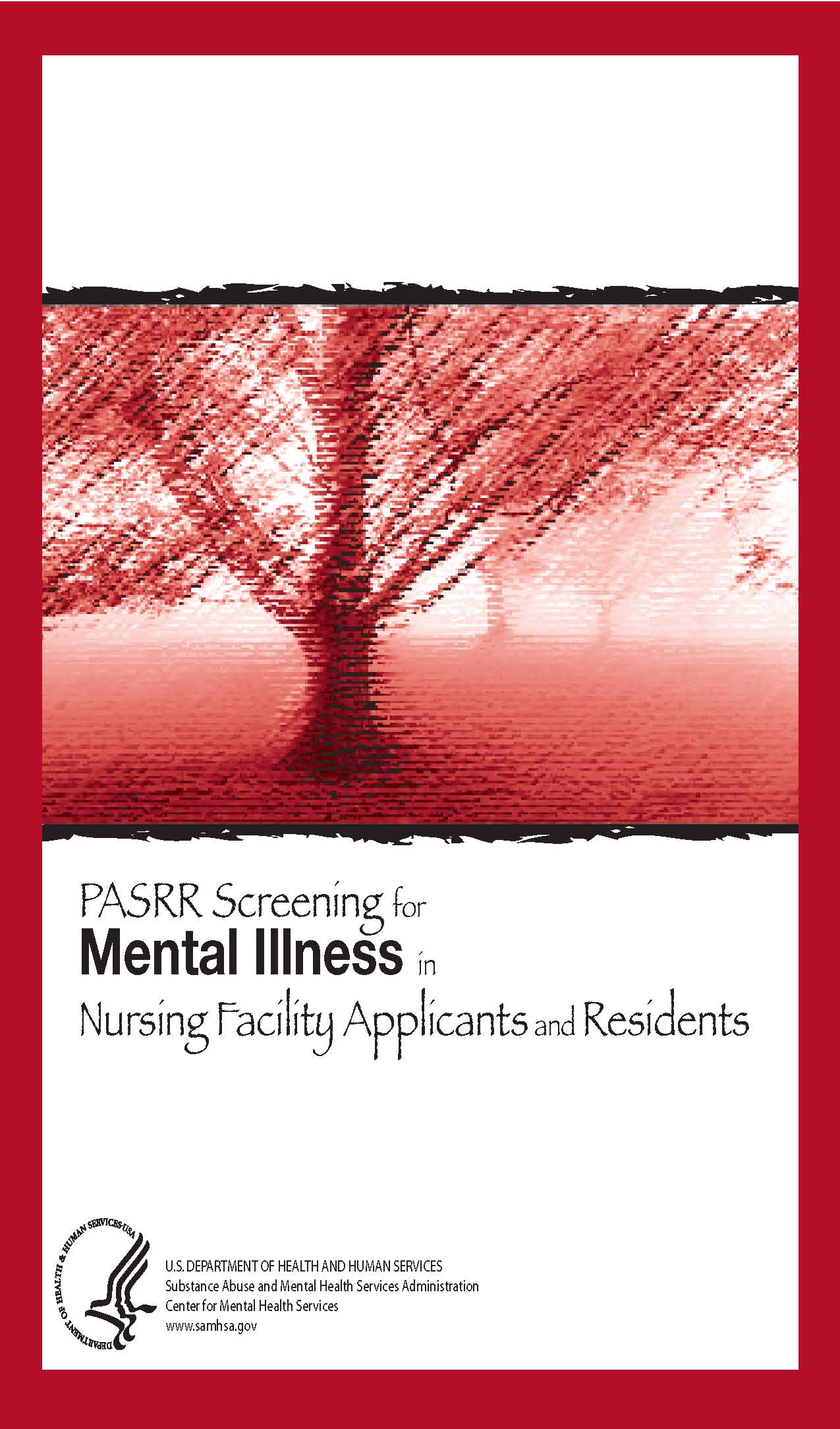PASRR Screening for Mental Illness in Nursing Facility Applicants and Residents

Citation: Linkins K.W., Lucca A.M., Housman M.G., & Smith, S.A. PASRR Screening for Mental Illness in Nursing Facility Applicants and Residents, DHHS Pub. No. (SMA) 05-4039. Rockville, MD: Center for Mental Health Services, Substance Abuse and Mental Health Services Administration, March 2006,
Abstract: Medicaid regulations require States to maintain a Preadmission Screening and Resident Review (PASRR) program to screen nursing facility applicants and residents for serious mental illness. The purpose of PASRR is to assess, through progressive screening, whether applicants for nursing facilities have mental illness or retardation, and if the nursing facility is an appropriate placement. A number of recent studies have questioned the efficacy of the PASRR process in identifying individuals with mental health needs and so this current study attempts to fill an important gap.
The study consisted of three different phases: (1) a review of the existing literature on PASRR and of the mental health services for those in nursing facilities; (2) a national survey of the relevant agencies in all 50 States to determine how they have organized and administered Federal requirements under PASRR; and (3) case studies and medical record reviews of nursing home residents within six nursing facilities from four States.
From the national survey, we found that states have pursued several different courses in designating State agency responsibility for administration of PASRR, in their designation of entities that can conduct Level I assessments, and in the entities that are contracted to perform level II assessments. While respondents faulted PASRR as currently implemented and many indicated that PASRR could be more effective with improved training and oversight, most rated PASRR as doing a “good” job of meeting its main policy goals of identifying individuals with serious mental illness, screening appropriateness for nursing facility care, and ensuring provision of specialized services.
From the in-depth case studies, we found the percentages of Level I screens found in the majority of medical records (ranging from 71 to 93 percent) whereas Level II screens, which are required to be in medical records, were far less prevalent in medical records (ranging from 0 to 14 percent). Within two States, clinical interviews were conducted with a sample composed of residents likely to have mental illness. This subset of residents did not receive a Level II Screen as required and very few of the interviewed residents received psychological testing/evaluation, the services of a psychologist, or any other mental health services. Taken together, these findings suggest that PASRR may not be meeting its second important purpose of ensuring that needed mental health services are provided to nursing facility residents.
